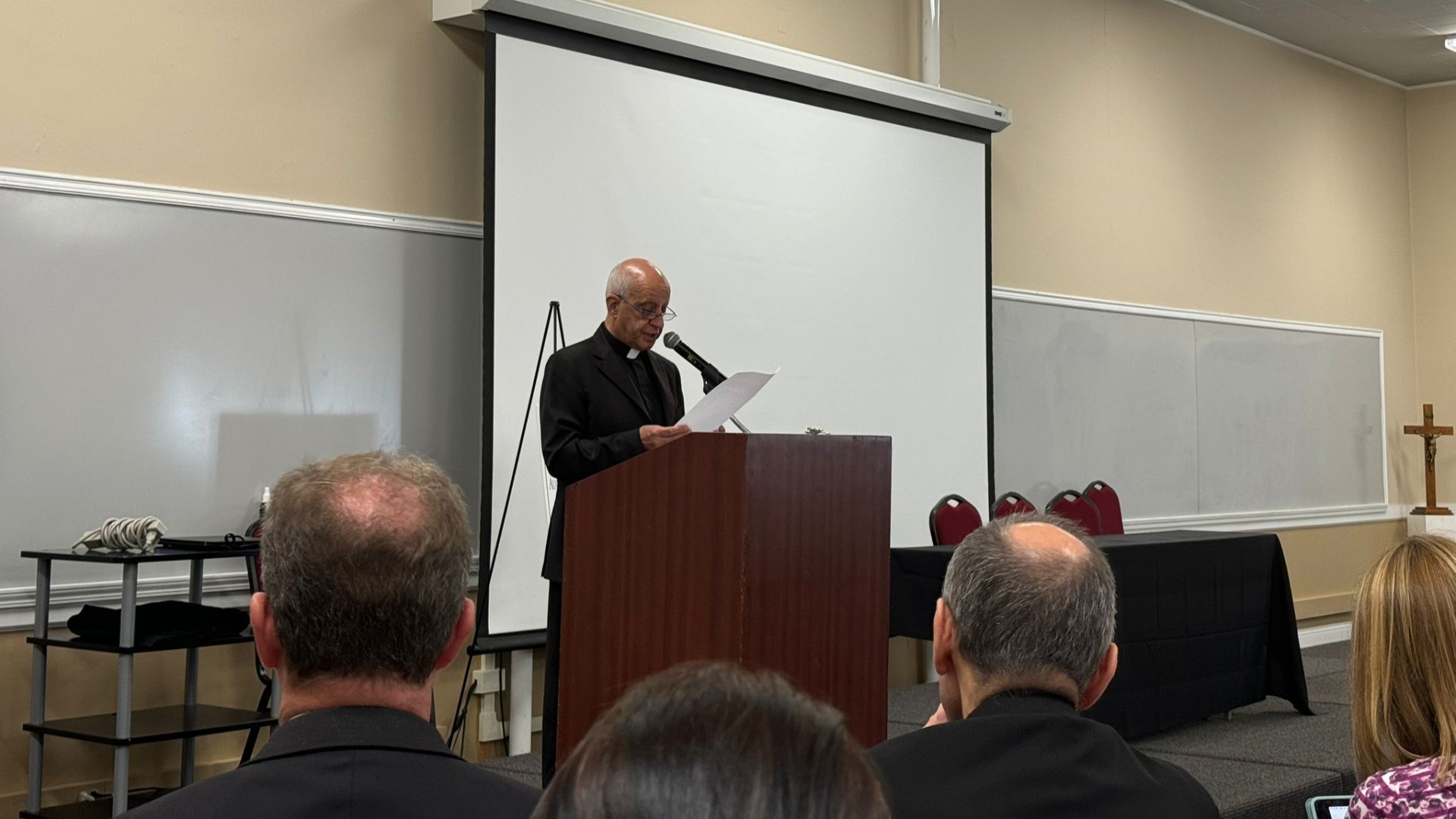Archbishop Fisichella to the US bishops: “Evangelizing is all about creating the culture of encounter”
A conference on the Directory for Catechesis organized by the Institute on the Catechism of the United States Bishops’ Conference was held from 17 to 20 June 2024, at the University of St. Mary of the Lake in Mundelein, Illinois. The gathering on the theme "Evangelizing Catechesis", involved diocesan bishops from all over the country, heads of Catechetical Offices, and directors of Catholic schools. The Pro-prefect of the Dicastery for Evangelization, Archbishop Rino Fisichella also participated and delivered a paper on the theme: “Evangelizing Catechesis and a Culture of Encounter”, underlining the importance of the ‘culture of encounter’ in evangelization.
In a context like the current one, which involves great cultural change, the Pro-Prefect said that “catechesis and the entire educational action of the Church should take on the primary task of creating a ‘culture of encounter’”. He added, “when the Directory for Catechesis introduces the theme of the ‘purpose of catechesis’ it brings us back to this fundamental objective: At the center of every catechetical process there is the meeting with the living Christ'".
Archbishop Fisichella noted that today's culture is a new culture, a "digital and AI culture that significantly impacts on our lifestyle … it operates in such a way as to cause the breakdown in typical human relationships and interactions". He pointed out that an authentic ‘encounter’ requires that we get involved in a real interpersonal relationship. This does not mean, he added, that "everything should be condemned as if we were only dealing with something negative", because even in the virtual sphere there can be moments “of true encounter".
To talk about ‘encounter’ and ‘evangelization’, therefore, "we cannot ignore the Sacred Scripture which par excellence is the book of encounter". He said: "Every page of the sacred text expresses the beauty of the encounter between God and his people". He went on: “Reviewing the many encounters described in the Bible would allow us to arrive at a ‘theology of encounter’ which would be extremely useful for us. What is essential is to consider the relationship between evangelization and encounter. Evangelizing, in fact, is quote simply the consequence of our encounter with the Lord."
The Pro-Prefect referred to two meetings in particular. “The first meeting is that of Jesus with his disciples (...). The meeting starts with the primary gesture of Jesus who ‘sees’ and from this visual, immediate, almost intuitive contact, he draws close to each of them, and from this comes the call to share his ministry. The decision of the disciples to follow is a grace granted under the gaze of Jesus and in response to his personal call."
The second example of an encounter is that between Jesus and the rich young man, "in which the conclusion unfortunately reveals the ineffectiveness of the encounter".
These two examples have “some very specific characteristics that help us understand what the encounter consists of, and what effect it has on people's lives. We can talk of an encounter when, first of all, we feel involved with a person - almost as if we immediately become like a family member, such is the sense of closeness and confidence that is immediately perceived. This experience of otherness sooner or later leads to the ability to change one's life."
In this context we can better understand “why the rich young man grows sad. He does not have the courage to go out of himself to really meet Jesus who encourages him to a change of lifestyle. That young man is incapable of leaving his home, where he feels protected and safe, whereas the apostle Peter embarks on the adventure of following a Master who doesn't even have a place ‘to lay his head’ (Mt 8, 20)".
Archbishop Fisichella insisted that kerygmatic catechesis, as emphasized in the Directory, "makes the encounter one of its decisive objectives". The concept of ‘encounter’ takes on an even more urgent and concrete significance in these months leading up to the opening of the Jubilee Year of 2025, "with which Pope Francis invites us to focus on hope".
Hope, which is the Risen Christ, “is not about unexpected events in future, but the certainty of the present. Opening ourselves up to hope is not an escape to some unknown future; rather it is something which forces us to keep our gaze fixed on the essentials of life … our encounter with the Risen Lord. A coherent kerygmatic catechesis does not reject the audacity of hope but places it at the foundation of its formative action. When the Directory describes the qualities of the catechist it says among other things: ‘The catechist never ceases to be a sign of hope for his brothers’”.


